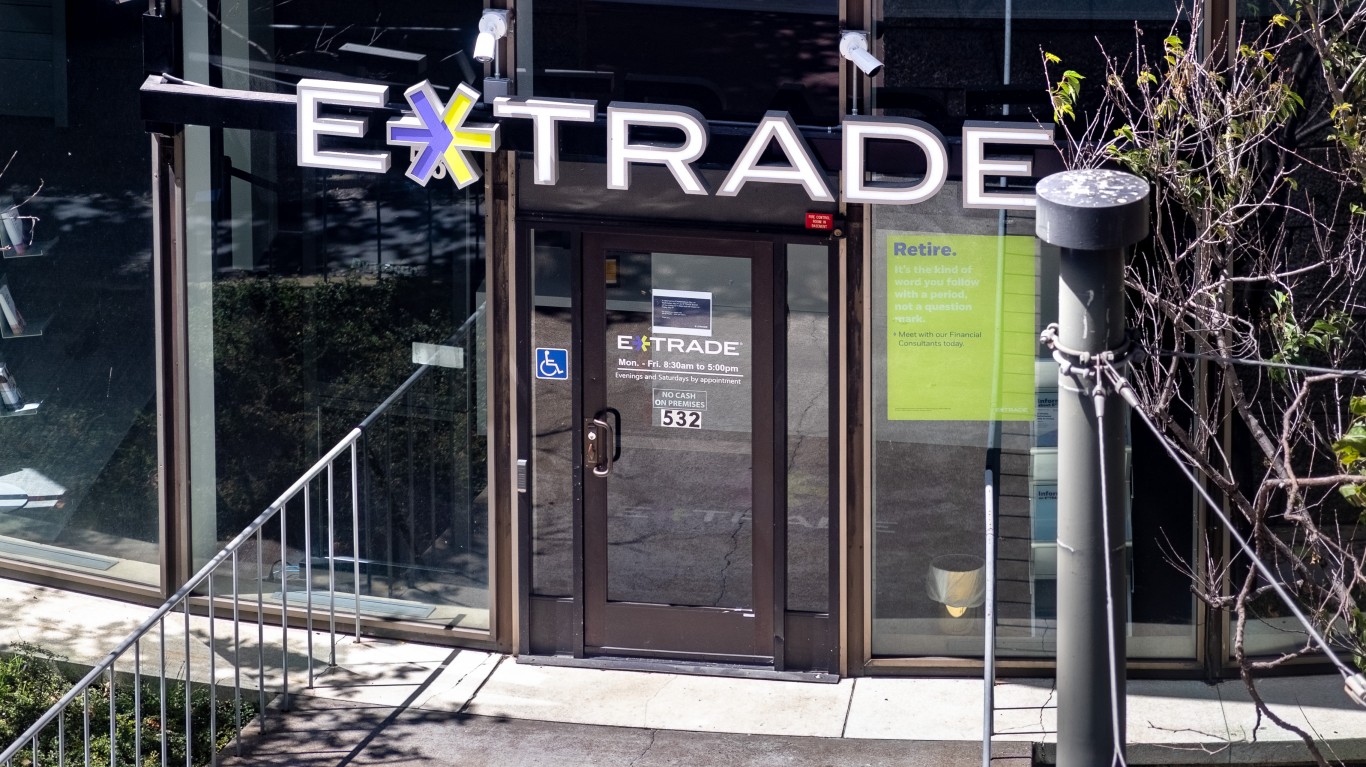

For better or for worse, we have found ourselves in a world in which it is nearly impossible to live a comfortable or fulfilling life after retirement without a significant amount of savings. You have to earn the right to enjoy your twilight years, otherwise, you will need to work until your final hours, or rely on your family to support you despite your contribution to society.
Therefore, the pressure to create a 401(k) account and contribute to it regularly is real and intense. While most retirement plans are tied to your place of employment, you always have the option to set up a solo, or individual, retirement account. This is the only real option for those who are self-employed, or work somewhere that does not offer a pension or retirement plan of its own. These are called solo 401(k) plans.
If you have been looking into creating your own solo (or individual) retirement account, it can become overwhelming comparing all the different options available to you. We looked into E*Trade’s individual retirement options so you can see exactly what you’re getting, and how it compares to other options.
Why Are We Talking About This?

Usually, the decision of where to invest your 401(k) is made by your employer. Hopefully, it includes some amount of employer match or other benefits. Though, for a variety of reasons, many people do not have access to employer-sponsored retirement plans. This can be because an employer doesn’t want to set one up or because you are self-employed.
In these cases, and many others, the responsibility of deciding who is going to manage your retirement fund falls to you. To help with this chore, we looked into E*Trade’s 401(k) options. You can also learn more in our full E*Trade review here.
Background on Solo 401(K) Plans

The term “401(k)” is only used in the United States to refer to retirement pension plans. Other countries have begun to adopt the term due to its popularity, but its name stems from the section in the U.S. Tax Code that deals with retirement pension plans. Beginning in the 70’s, company-provided retirement pensions began to take off in order to buy the long-term loyalty of employees. Typically, self-employed people were left out, so the Solo 401(k) was created.
In 2001, the United States government passed the Economic Growth and Tax Relief Reconciliation Act, making 401(k) plans more beneficial and accessible to self-employed people. This essentially raised the limit on the amount an individual could contribute to their plan every year. Now, some people prefer to have a Solo 401(k) plan over a typical pension plan for these reasons.
Solo 401(k) accounts function essentially identically to employer-sponsored plans. The rules for contribution limits, withdrawals, rollovers, and other ways to manage your retirement savings are the same. Retirement accounts are heavily regulated in the United States so the amount of customization remains limited within and between different accounts and companies.
The primary difference between the plans is that you will not have any employer-matched contributions (since you are your own employer, any contributions are employer-matched, though some savvy tax preparers can help find some ways to minimize your company tax burden), and any plan changes will have to be made by you instead of your company representative.
E*Trade’s Individual 401(k) Options

E*Trade calls its solo 401(k) plan options Individual 401(k)s, and there are a few things to keep in mind before trying to sign up for one.
These plans are only for self-employed individuals who employ no other people other than their spouse. If you employ any number of employees at your business, you will need to sign up for a full employer-sponsored 401(k) plan. If you are self-employed in your own business and have a full-time job at the same time, you can have both an employer-sponsored account and your own solo 401(k) but the contribution limits apply to both, so you can’t double your contributions just because you have two accounts.
It is important to remember that a solo 401(k) is different from an IRA. On the E*Trade website, you will be guided to complete its Small Business Questionnaire to help you pick which retirement plan is best for you and your small company. If your business only includes you and your spouse, you will be able to pick from the Individual 401(k), an SEP IRA, or a Simple IRA. We strongly encourage you to research the details of all three options before selecting any of them as switching accounts can incur fees and a lot of valuable time.
If you end up hiring employees at your self-employed business, you are required to add them to any employer-sponsored plan. Since this plan is for self-employed people only, it might require that you terminate your solo 401(k) plan, causing all kinds of problems and big headaches for you. If you have any plans to hire employees in the future, it might be best to avoid setting up an Individual 401(k) account for now.
You can choose between a Traditional 401(k) and a Roth 401(k). If you want to incorporate profit-sharing into your plan instead of just salary deferral, then you will need to open a Traditional 401(k).
One major benefit of an Individual 401(k) account is that account holders are allowed to take out personal loans against the account value.
Besides the restrictions on the Individual 401(k) plans from normal plans, the only things that really set E*Trade’s solo accounts apart from those at any other institution are the investment options of mutual funds, ETFs, stocks, and other assets. E*Trade will offer its own selection of portfolios to pick from if you don’t want to select your investments yourself. All major platforms are going to have access to the same assets, so, your pre-selected portfolios and account support are what are going to make or break these 401(k) options. See our comparison of TD Ameritrade and E*Trade here.
The Verdict on E*Trade’s Individual 401(k)

In the end, if you have the choice of where to open a new solo 401(k) account, it mostly comes down to which company you tolerate dealing with best, which ones you trust to successfully keep your money safe, and which company (if any) are forwarding the causes you care about. If you already have an investment account with E*Trade and have enjoyed your experience, then it might be a good idea to keep you accounts under the same umbrella. For example, E*Trade offers a Premium Savings Account, and you might prefer to have your retirement savings at the same company.
We encourage you to look into the financial history and health of a company you are considering investing with so you can save for retirement without worrying if your money will still be there in the future. You can see our complete comparison between Robinhood and E*Trade to see the differences.
If you are curious about any other part of the E*Trade platform, check out this page: a regularly updated list of all our E*Trade guides, news coverage, and lists of benefits.
Smart Investors Are Quietly Loading Up on These “Dividend Legends”
If you want your portfolio to pay you cash like clockwork, it’s time to stop blindly following conventional wisdom like relying on Dividend Aristocrats. There’s a better option, and we want to show you. We’re offering a brand-new report on 2 stocks we believe offer the rare combination of a high dividend yield and significant stock appreciation upside. If you’re tired of feeling one step behind in this market, this free report is a must-read for you.
Click here to download your FREE copy of “2 Dividend Legends to Hold Forever” and start improving your portfolio today.
Thank you for reading! Have some feedback for us?
Contact the 24/7 Wall St. editorial team.


